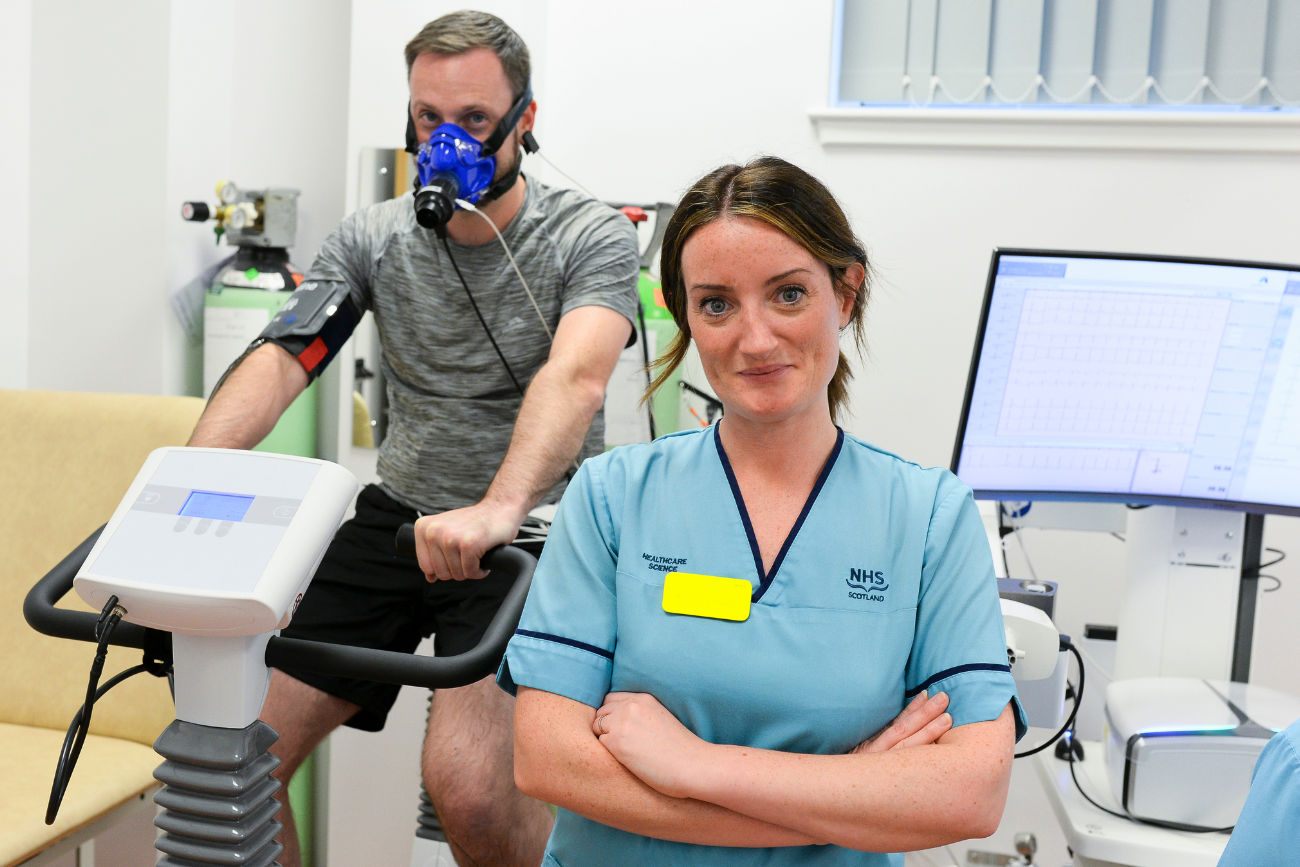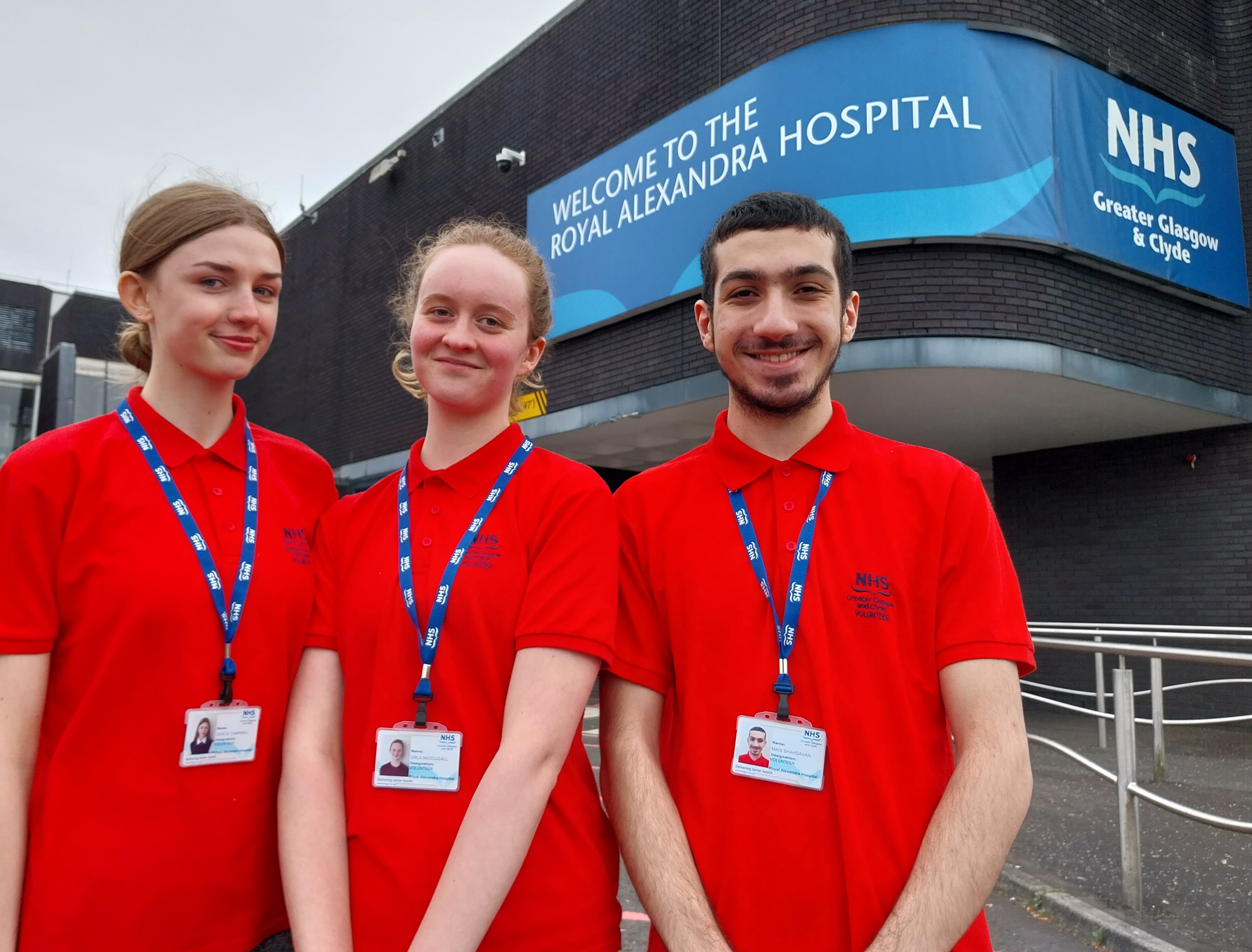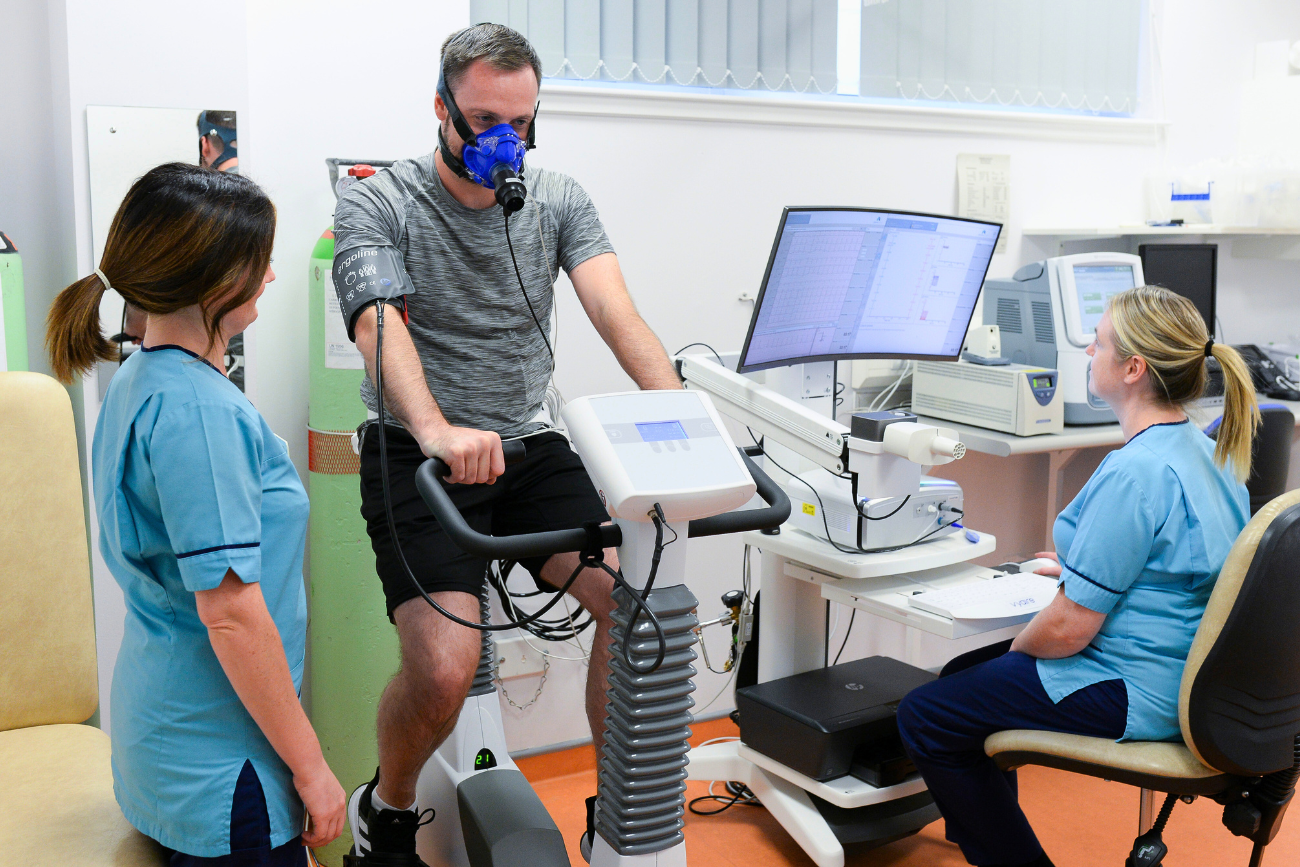Previous
Reconstructive scientist
To become a respiratory physiologist, you can apply for trainee opportunities on our recruitment website. Another route is to complete an undergraduate degree at university.
Respiratory physiologists diagnose and treat patients with lung disease and breathing difficulties, including asthma and cystic fibrosis. Patients may be referred from other departments, including cardiology, thoracic surgery, or clinical oncology, so their fitness for surgery or treatment can be assessed.

If you’re interested in a career as a respiratory physiology practitioner, useful school subjects include:
Speak to your guidance teacher or careers adviser about subjects offered at your school.

You may find it helpful to get some healthcare experience by doing a work placement or volunteering. You’ll get training, increase your knowledge, and learn new skills. This could help you when applying to college, university, or a new job with NHSScotland.
There are different education and training pathways to becoming a respiratory physiologist. Whichever route you choose, you must complete an undergraduate degree programme.
A widely recognised route is to complete an undergraduate-level training programme.
As a trainee respiratory physiologist, you’ll be employed by an NHSScotland Health Board while you complete an undergraduate honours degree programme at SCQF level 10.
You’ll also receive training within the department to provide you with the skills, knowledge, and experience you’ll need to become a respiratory physiologist. When you complete training, you can register as a healthcare science practitioner with the Academy for Healthcare Science (AHCS).
Some health boards offer alternative work-based training programmes if you already have an undergraduate honours degree in a related science subject at SCQF level 10.
Search for undergraduate science degree programmes on My World of Work.
As a trainee, you’ll complete a 2-year practical and theoretical training programme. You can then register as a healthcare science practitioner with the AHCS.
You can apply for all training opportunities on our recruitment website.
The Academy for Healthcare Science (AHCS) maintains voluntary registers for healthcare science professions not covered by statutory registration and regulation. These registers are accredited by the Professional Standards Authority for Health and Social Care (PSA).
When you qualify as a cardiac clinical physiologist, you can register with the AHCS as a healthcare science practitioner.
Find out more about the Academy for Healthcare Science.

As a respiratory physiology practitioner, you’ll carry out diagnostic tests to identify and treat lung disease and breathing problems. Respiratory disorders include:
Communication skills are essential as you must coach and encourage patients to use different breathing techniques during testing. These tests may be done while the patient is resting or during exercise, using various skills, techniques, and equipment.
You’ll produce reports to help other healthcare professionals make a diagnosis or show how well a patient is responding to treatment.
Your main tasks could include:
You’ll need these skills:
You’ll work with:
As a respiratory physiologist, you could work in:
Once you’ve become a registered healthcare science practitioner, there are ongoing requirements for education and skills development. You’ll have lots of opportunities to go further and learn more.
With training and experience, you could move into a specialist, supervisory, or management role, such as a respiratory physiology service manager.
Respiratory physiologists can apply to become clinical scientists to progress in their careers.
If you already have significant professional NHS experience in respiratory physiology or have completed a training programme that does not directly lead to registration as a clinical scientist, you can apply for equivalence recognition.
It is a route you can take to demonstrate that you already have the skills, knowledge, and experience to become a clinical scientist in respiratory physiology.
You’ll submit a portfolio of work to the AHCS or the Association of Clinical Scientists for assessment and attend an interview. If successful, you can register with the Health and Care Professions Council as a clinical scientist.
Find out more about clinical scientist training and equivalence recognition on the NHS Education for Scotland Healthcare Science website.
Once you become a qualified respiratory physiologist, you can register as a healthcare science practitioner with the Academy for Healthcare Science (AHCS).

Discover the range of healthcare science careers you can choose in the NHS.
Healthcare science
Our blog includes how-to guides, case studies, and career resources.
Discover more